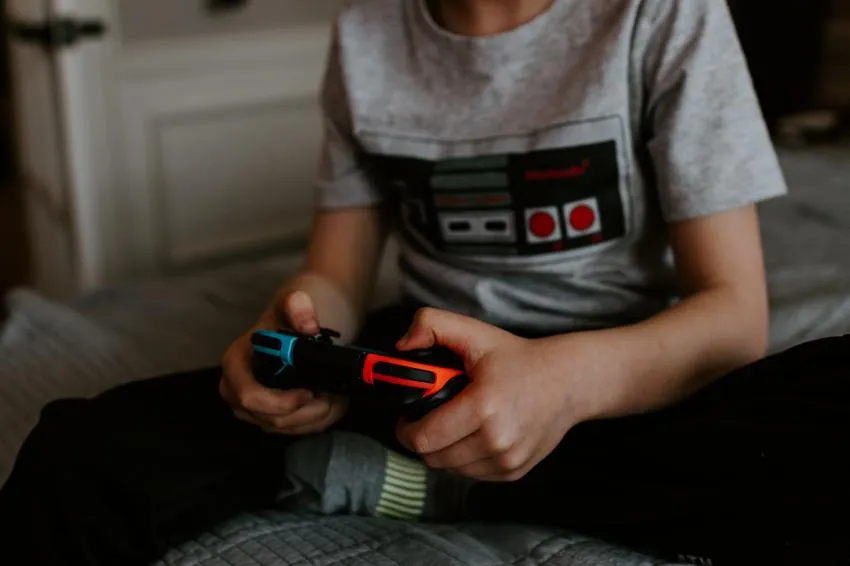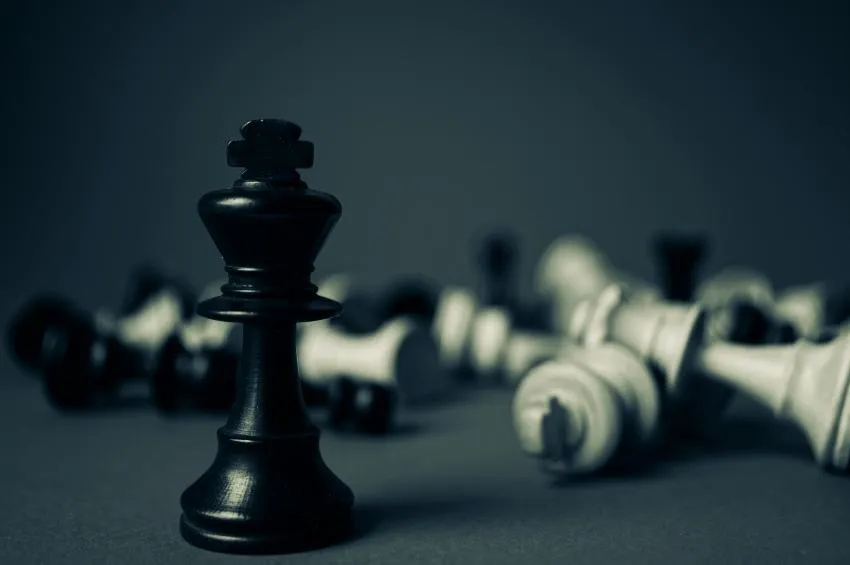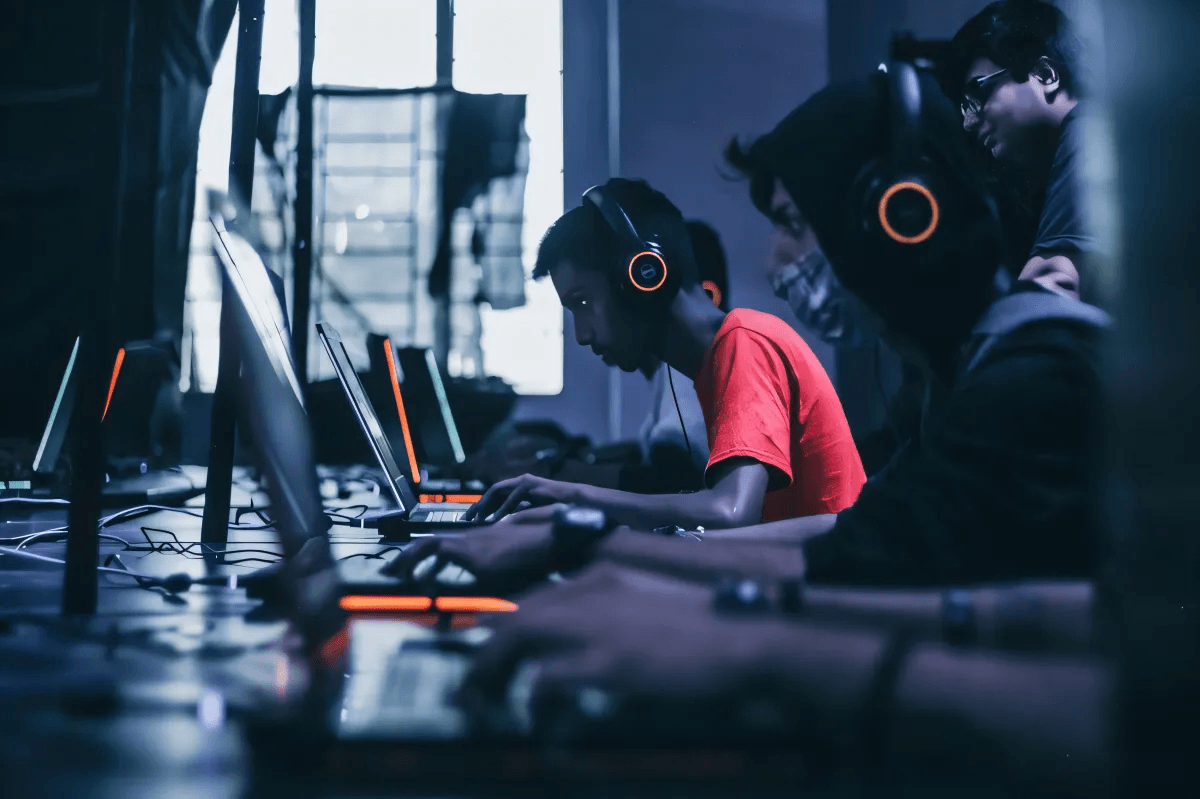10 Reasons Why Video Games Are Not Bad For Kids

Video games have become quite the phenomenon nowadays. What was once regarded as fun leisurely active is now seen as mainstream entertainment. It warms my gamer heart to see people finding enjoyment in gaming, but it wasn't always like this.
When I was young, I used to get bullied for liking and playing video games. Back then, playing video games didn't make you cool, instead playing video games makes you look like a nerdy dork.
In the first grade, I went to school with a Charizard backpack from, Pokemon series. A month into school and nobody wanted to talk to me. While the other kids went outside for recess, I asked my teacher if I could stay inside and just play games on the computer. She allowed me too and later on, some other kids that didn't go outside for recess stayed inside to play games with me.
I wouldn't have connected with those people if it hadn’t been for my love of playing video games. Video games can provide a lot of good to your kids rather than harm.
Here's why video games are not bad for kids.
1. Heightens Your Reflexes
It's been said that playing video games can lead you to be distracted easily and cause attention problems. However, the exact opposite is true. Yes, playing video games for the majority of your day can cause problems, but that can be said with any excessive consumption of a product. Cognitive researcher, Daphne Bavalier, shows how video games leading to people being easily distracted and cause attention problems to be false in her experiment with the audience.
In the demonstration above, Ms. Bavelier showcased that people that played video games were quicker to recognized the conflict and adapted to the new situation. In the rest of her TED talk, she brings up how video games can strengthen focus, learning, and other cognitive abilities that playing video games provides.
This is going to be a little embarrassing, but I had terrible hand-eye coordination. A ball would come direct at my face, hit me in my face, falls all the way to the ground, then I clap my hands as if to catch it. Some say I still do, but I know they are lying. It wasn't until I started playing video games that I notices that my reaction time getting faster.
2. Refine Motor Skills & Improved Memory
Having hand-eye coordination and being able to remember, recall, and use information promptly are valuable skills to have in your arsenal. Most video game genres, action, adventure, horror, creativity, etc. have elements of refining your motor skills and improving your memory, but, a genre that takes it to the next step is the fighting game genre.
Skill is often required to play most of these games, but none exhibit this more than in fighting games. In the example below, a YouTuber by the name, Somwreck, demonstrates the hardest combos to do in the latest installment of the Tekken series, Tekken 7.
They may look hard to us, but not to pro-gamers! Being able to do these fast pace combos with precision is no easy feat.
To those unfamiliar, Tekken started in the early '90s and has had critical success over the years with its games. In Tekken, usually, each character will have over 100 possible moves/button combinations to use during a match. It's up to the player to use the best set of moves in order to beat their opponent. This is where the memory aspect comes into play.
Combos are the difference between winning a match or losing a match. If you go in without having remembered any of your combos, you are almost certain to lose the match. I say almost because you can mash the buttons and hope you win. Going in with a set plan and strategy in mind can win the game 9 times out of ten, (unless there's lag) which, leads me to my next point.
3. Encourages Strategic Thinking

No plan, no chance. The world is in need of people to think of new ways to achieve the desired result. Video games have some semblance of the strategy implemented in them unless it's a strategy-based game.
Rather than be exploiting a boss's weakness, coming up with a new battle play in a fighting game, or communicating with your team so you're all on the same page. Strategy-based video games incorporate all of these aspects. Without a strategy or plan of attack, you're pretty much screwed.
I want to share a story about how I didn't incorporate a strategy in a video game and all the anger I could have spared myself from. There's a popular series of video games know as the "Souls" series and it is notorious for being extremely difficult. In the first installment of the Souls series, Demon Souls is where I learned that having a good strategy is beneficial to your success.
A boss named, Flamelurker, was giving me a hard time. His body was composed of fire and I came at him with the sword. He barely took any damage. I kept wailing on him and dodged his attacks, but I still couldn't deal significant damage to him.
After about my, fourth death, I cast a magic spell on him and saw it did a lot more damage than me swinging my sword at the fire. Unfortunately for me, I was a warrior class and warriors don't have a lot of magic points. So, I would have to reset my points in order to get the victory. A couple more failed attempts, because I'm bad at the game and boom. I manage to beat the Flamelurker.
Regardless of any way to approach it, kids must learn how to strategize. Otherwise, they will be stuck swinging a sword at a flame creature. Eventually, it will be defeated, but wouldn't make it easier to tackle the problem differently.
4. Boost Creativity & Productivity

What is life without a little creativity? Being able to take nothing and turn it into something, are an amazing gift we have and video games provide that creative outlet. Video games take the idea of creation and leave it to the players to decide their journey.
Some of these types of games, Minecraft, Stardew Valley, The Sims, Animal Crossing, and other games in that genre, encourages people to create a world in their design. With these games, in particular, your child may develop an interest in designing, engineering, architecture, etc.
For me, video games were my outlet to express myself freely. Not only that, but it introduced me to a whole new world every time I started a new game. Playing video games inspired me to be a writer and storyteller. When I was younger, I would often write about fantasy novels in my journal (when the teacher wasn't looking) and share with the few friends I had.
Most of the time, they said they liked it and want me to continue doing it. If it hadn't been for video games, I would not have pursued my dream of being a storyteller. Creative minds are needed in our society, you can't expect to get a new result by doing the same thing over and over again. It takes creative people to go back and restructure the problem and find a better solution.
5. Levitates stress and keep your mental health in check

For most people, playing video games is a great form of relaxation from the craziness that is our world. It's a way to put all your troubles and worries on hold for a few minutes. Playing video games is like having a mini-vacation! A way to, let off some steam, recenter yourself, or to put it simply, escape from the real world for a few minutes.
I remember having a really bad day at school. The other kids would often make fun of me and bully me, because of how I was speaking. Not knowing how to process my emotions when I was young, I would often cry as a result of getting picked on. That only increased the bullying. Whenever I came home, I would go to my room and play video games to feel better. I found solace in playing video games.
You don't have to be good at the game. I'm certainly not. Just grab a controller, grab a friend, grab your gamer juice, and get lost in the visual world for a few hours.
6. Develop Problem Solving Skills
Developing problem-solving skills is a crucial skill to have in our society. As illustrated here in this TED talk by Jane McGonigal. A game designer and an author with extensive research on video games and how they can make us better problem solvers.
As shown by, McGonigal, video games are designed to help gamers solved problems that they will face on their journey. People want to work with people that can solve problems as quickly and efficiently as possible. Games are one big problem to solve and it takes hard work and dedication to see the journey to the end.
I never viewed video games this way before, but what she is saying is true. Depending on the genre, video games do promote problem-solving skills. Like I mentioned above, you can't expect a different result by doing the same thing over and over again. You will have to find alternative ways to achieve that in short order or else you're going to lose and, in life, there are no checkpoints.
7. Trail and Error builds perseverance and patience
The screen that haunts gamers to this day. If anyone knows how to preserve, it's a gamer. Sometimes, when you are playing a game, you may come up to a point where, no matter what you do, you can't beat it. Despite all your many attempts, the boss(es), is too strong for you.

One day, you go up to face this boss and, suddenly, you start to dodging the boss's attack and picking up on the boss's movements. You deal the final blow to this boss that has given you nothing but trouble. This has to be the most euphoric feeling in the entire world.
Let me share with you all another story for the Demon Souls series. There was another boss that I had to fight in this game and all I have to say is that I am a different man because of this fight. The boss's name was Old King Allant and he taught me a very important. Perseverance. With a side of SWEET JUSTICE. My first encounter with him didn't go well because I didn't know his attack pattern.
So, I lost the first bout, and the second and third, and so on and so forth. I lost count as to how many times he has beaten me and it was snoot as easy as using magic to beat him. You had to use everything to beat him and he wouldn't go down easily, but I never gave up. One final attempt and I took all of my final attempts, all the blood sweat, and tears, I took all of it to that battle to beat him.
I celebrated that victory like I won the lottery and that's what video games allow us to do. To failover and over again until you get it right, and once you get it right, you are golden
8. Explore New Digital Worlds And Stories

What if I told you that you can, expand your knowledge of the world, interact with different cultures, explore uncharted territories, and get lost in space, all in the comfort of your home. No, I'm not talking about Google Earth. All of this can be done by playing video games.
The image above was inspired by a popular game Nintendo series, SuperMario, and in honor of its legacy, there is now a whole theme park in Japan dedicated to this game. That is unbelievable to me. You can now explore the world of Mario in real life.
9. Helps you Network And Make New Friends
I have made my fair share of friends through playing video games and vice versa. Video games bring people together, albeit, some of the interactions you have with people can vary really good to really bad. Moreover, most of the time, your child will be able to find like-minded people like them that like the games they play and would want to be friends.

I have made some interesting friends I otherwise wouldn't have through video games! I even asked them about how did playing video games helped them, and most of them said it connected them to people they otherwise wouldn't have met.
Now it seems like everyone is playing video games, even celebrities, and I couldn’t be any happier. This is just a testament to how video games have made a cultural impact in the mainstream media and how they will continue to impact the lives of others for generations to come.
10. Videos games Are Fun!

All in all, video games promote a stimulating experience for the individual. Be there with your kids as they play and educate them on what's right or wrong. Playing video games is not a waste of time, it's a way to understand and tackle the bosses that lay ahead.
So, let your child play video games, in moderation of course, and join in on the fun, because they are going to be the ones to tackle the problems we face today.
Video games only strengthen the resolve of your child. It will teach them to be creative, resilient, and acquire unique problem-solving skills.
Opinions and Perspectives
The digital worlds point is fascinating. Games can be great cultural learning tools
I learned project management from strategy games before I even knew what it was
The cultural impact section really shows how far gaming has come in society
The networking aspect is real. My kids have friends across the country through gaming
Some of these benefits seem exaggerated. Not every game develops all these skills
I found the point about fighting games and motor skills particularly interesting
I see gaming helping my introverted child connect with others who share his interests
That Souls game story about persistence really struck a chord. Sometimes you just have to keep trying
The stress relief angle is important. Kids need healthy ways to decompress too
I learned English through gaming. The story elements really helped me improve my vocabulary
The creativity aspect is understated. Games like Minecraft are basically digital LEGO
That's still pattern recognition and memory training though. Those skills transfer to other areas
The memory benefits are real. My kid remembers every Pokemon type and weakness, but struggles with multiplication tables!
True, but that's where parental guidance comes in. We can teach them how to handle online interactions safely
I worry about online gaming though. The community isn't always friendly to young players
The perseverance point is crucial. Games teach kids that failure is just part of the learning process
My son learned basic coding through gaming. Now he wants to be a game developer
Love how the article mentions McGonigal's TED talk. Her research on problem-solving through gaming is groundbreaking
The research by Daphne Bavalier is fascinating. I had no idea video games could improve focus to that extent
The story about the Charizard backpack hit close to home. Gaming culture has come such a long way since then
Actually, you'd be surprised. My 10-year-old picks up game mechanics faster than I ever could
That point about the Tekken combos is interesting, but honestly most kids aren't going to develop those kinds of reflexes
I struggled with social anxiety as a kid, but gaming helped me connect with others who shared my interests
The strategic thinking aspect is spot on. My daughter plays Minecraft and the planning she puts into her builds is incredible
While I agree with most points, I think we need to be careful about screen time limits. Too much of anything can be harmful
The part about gaming helping with stress relief really resonates with me. After a long day at work, nothing helps me unwind better than an hour of gaming
I really appreciate how this article highlights the cognitive benefits of gaming. My son's hand-eye coordination has improved significantly since he started playing
